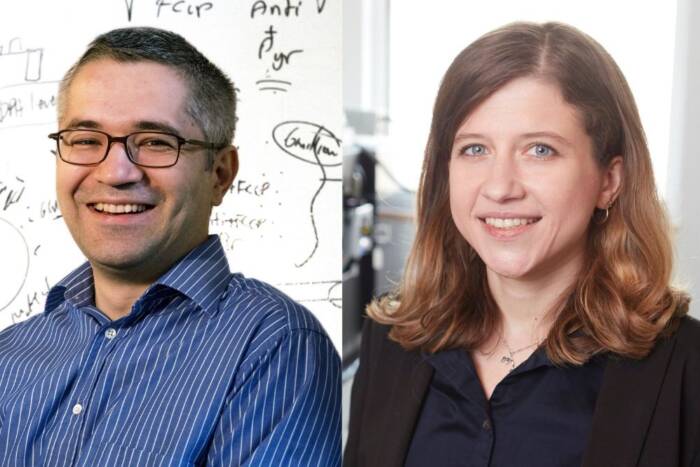French Nobelist, Author, to Receive 1994 Lewis Thomas Prize from Rockefeller University
François Jacob will speak on “Biology and Culture”
Seeking to honor that rare individual in whom the two cultures of science and art are combined, The Rockefeller University will present François Jacob, the Nobel Prize-winning molecular geneticist and highly acclaimed author of three books on science, with the second Lewis Thomas Prize on Wednesday, May 25.
Dr. Jacob will receive the award from Dr. Torsten Wiesel, the Nobel laureate neurobiologist who is president of The Rockefeller University, and from Richard Furlaud, Chairman of the Board of Trustees. Jacob will then give a lecture entitled “Biology and Culture.” The lecture will take place on Wednesday, May 25 at 5:00 p.m. in Caspary Auditorium at the university’s campus on York Avenue and 66th Street.
Lewis Thomas, the noted physician, scientist and essayist who died last year, was himself the prize’s inspiration and its first recipient in 1993. He was also a member of the Selection Committee that chose Dr. Jacob for 1994.
According to the citation, the Lewis Thomas Prize recognizes “the scientist whose voice and vision can tell us of science’s aesthetic and philosophical dimensions, who gives us not merely new information but cause for reflection, even revelation, as in a poem or painting.”
The Selection Committee for the 1994 Lewis Thomas Prize believes that François Jacob embodies this synthesis of talents in a distinctive and highly original manner. A scientist at the famed Pasteur Institute in Paris, and professor of the College de France, Dr. Jacob’s research has revolutionized modern genetics. Studying some of the world’s simplest organisms–the “phage” viruses that invade bacteria–Dr. Jacob’s research has helped lay the foundations of our modern understanding of the logic and machinery by which DNA directs a cell’s functions. In 1965, he received the Nobel Prize in Medicine.
Jacob has also gained world renown as an author of three distinguished books: The Logic of Life, hailed by the philosopher and historian Michel Foucault as “the most remarkable history of biology that has ever been written”; The Possible and the Actual, regarded by many as the most acute account yet written on the evolution of biological form; and The Statue Within, an autobiographical memoir described by The New York Review of Books as “comparable in its evocative power to Boris Pasternak’s Doctor Zhivago.”
François Jacob was born in 1920 in Nancy, France. In 1940 his medical studies at the Faculty of Paris were interrupted when the Germans invaded France; Jacob escaped, joined the Free French forces in London and served during World War II as a medical officer in North Africa and in Normandy. Fighting with the allies, he was severely wounded and thus forced to abandon his studies as a surgeon. He eventually turned to research in bacterial genetics, joining Andre Lwoff’s famed group at the Pasteur Institute in 1950.
With Jacques Monod, Jacob showed how the genetic information contained in DNA can be switched on and off–the “operon” theory of gene regulation that lies at the heart of our modern conception of the genetic control of embryonic development. With Sidney Brenner and Mathew Meselson, Jacob isolated messenger RNA, the molecule which transcribes the coded information of DNA and then serves as the template for this information’s translation into proteins. In 1965, Jacob shared the Nobel Prize in Medicine with Monod and Lwoff for his work on gene regulation.
Jacob has won numerous other awards and is a member of many honorary societies, including the French Academy of Sciences, the National Academy of Sciences of the United States, and the Royal Society of London.
The Lewis Thomas Prize was established by The Rockefeller University Board of Trustees in 1993 and is funded by individuals, foundations and corporations. The Lewis Thomas Prize Selection Committee was comprised of Alexander Bearn (chairman), Abraham Pais, David Sabatini, Elizabeth Sifton and the late Lewis Thomas.


